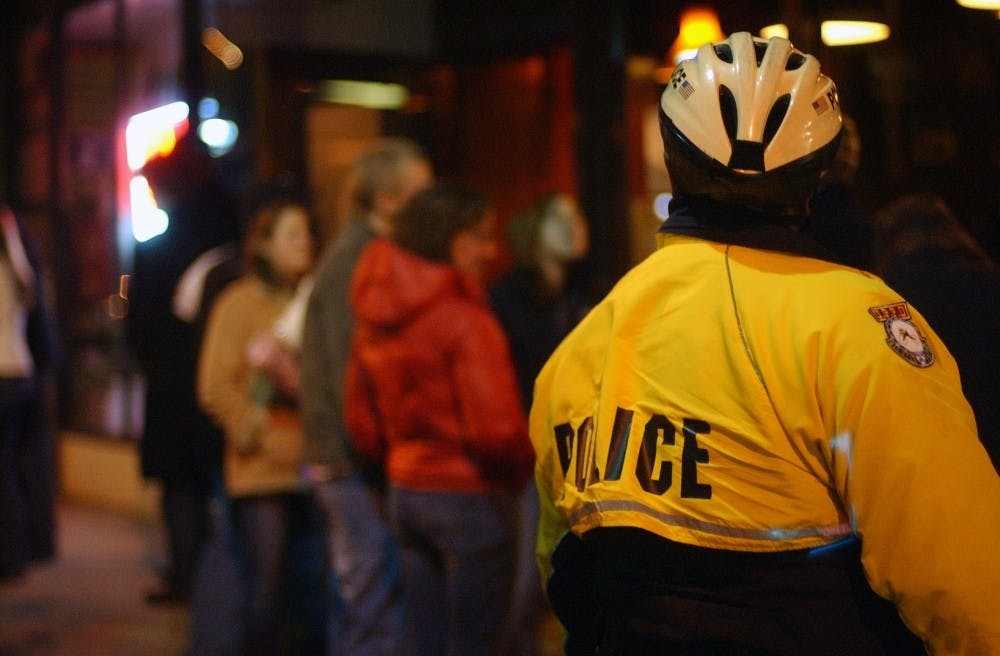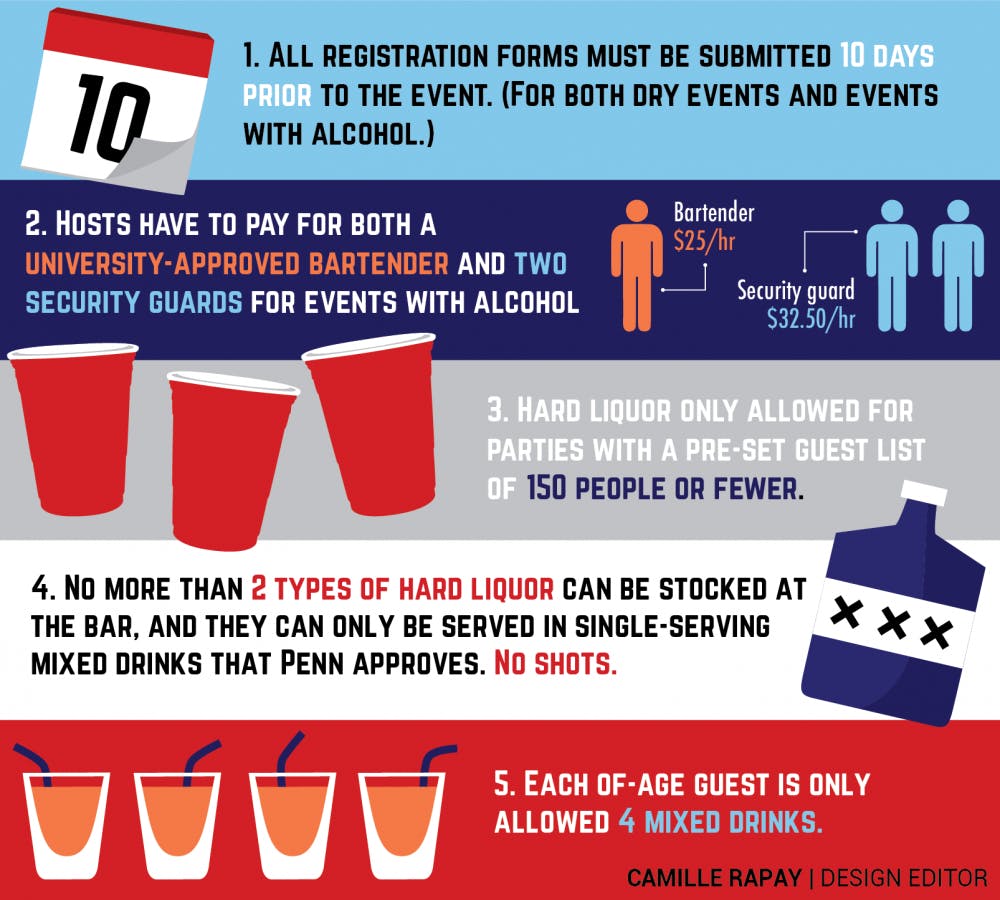
The Penn administration has rolled out a series of new measures to tackle sexual assault and hazing on campus, many of which have been met with opposition by students.
At a meeting on Sept. 13 titled “We Are Penn: A Community Conversation,” hundreds of student representatives filled the stands of the Palestra to hear about the University’s new initiatives.
Members of the organizing bodies presented the newest University initiatives to combat hazing and sexual violence including event registration, Event Observers and the Anti-Violence Engagement Network.
“We understand that there may be a feeling that [the Event Observers] are out shutting out all the parties right now,” Executive Director of the Office of Student Affairs Katie Bonner said. “I would like to dispel that myth. That is not the case.”
Bonner said the Event Observers, who are paid $35 an hour, are meant to be resources for students, but after a slew of party closures this semester, many students have voiced criticism of the EOs.
Bonner also explained that from this semester on, all student organizations are required to register their social events with the Office of Alcohol and Other Drugs.

No matter where the event is held, student groups must register their events online at least 10 days before it is scheduled to take place. The administration did not specify what size gathering constitutes a party.
Hosts of events with alcohol are required to follow a series of additional regulations.
These include hiring a University-approved bartender and a pair of security guards for the entirety of the event, which cost $25 per hour and $65 per hour, respectively. If an event lasts for 5 hours, the cost of registration comes up to $450.
"These are pretty high costs to expect people to pay," College senior and Interfraternity Council President Bradley Freeman said. Freeman explained that among student groups, fraternities are more likely to be able to afford these costs because they collect dues. Earlier this week, IFC told all fraternity chapters that they will pay 50 percent of the costs needed for the bartender and security guards.
"For other groups that maybe don't collect dues, that's an unreasonable cost. It's not fair, in my mind, that only people who can afford these new additional costs can host events," he said.
Freeman also pointed out that during periods with a high frequency of events such as Spring Fling, the University might not be able to supply enough bartenders and security guards.
"If the University is now expecting the whole school to register events, they need to be ready to meet capacity, so that anyone who wants to register an event, can," he said.
Under the new guidelines, hosts are also required to have sober hosts present and are not allowed to provide hard liquor for parties with more than 150 guests. If they do wish to stock hard liquor, they are only allowed to serve pre-approved mixed drinks, and not allowed to offer shots.
Registered hosts can expect to receive visits from EOs to ensure that their events are adhering to University's alcohol regulations. According to the VPUL website, EOs are part-time staff of the AOD. They wander around campus on Thursday, Friday and Saturday nights to check registered and unregistered events.

Associate Director of Sexual Violence Prevention and Education Malik Washington was also present at the meeting. He introduced PVP’s newest campus initiative, the Anti-Violence Engagement Network, a program that clubs can enroll in.
“We want to engage with you, and empower you, to say that you will not accept a culture of sexual assault on campus,” Washington said. “This series of steps will help to formalize that.”
Student leaders at the event also discussed their participation as student representatives in a task force exploring campus social life – specifically the culture of hazing – last semester.
“We met with many student group to discuss and better understand what it means to be a Penn student and the rights and responsibilities that entails,” said Co-Chair of the University Honor Council and College senior Christopher D’Urso.
“It’s really important to recognize this: a lot of things have happened at different schools” Karu Kozuma, the associate vice provost for student affairs said, in reference to the recent hazing death of Penn State freshman, Timothy Piazza. “One of the deadliest ingredients for things that happen like that is thinking that it cannot happen here."
The Daily Pennsylvanian is an independent, student-run newspaper. Please consider making a donation to support the coverage that shapes the University. Your generosity ensures a future of strong journalism at Penn.
Donate






